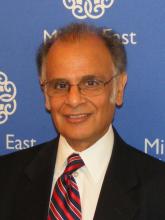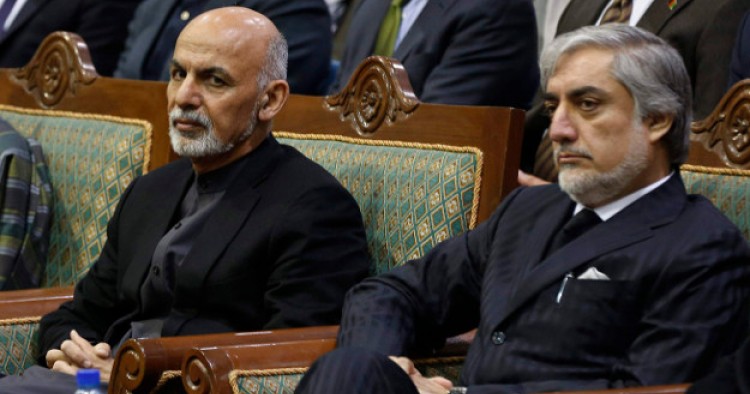In this week's Monday Briefing, MEI experts Zubair Iqbal, Alex Vatanka, and Marvin G. Weinbaum provide analysis on issues including India's Middle East policy as its foreign minister is set to visit Iraq and Syria, the opening of relations between Iran and Turkey following the latter's recent failed coup, and the latest signs of tension within Afghanistan's shaky unity government.
India’s FM to Visit Iraq, Syria
Zubair Iqbal, MEI Scholar

Minister of State for External Affairs M.J. Akbar’s planned visit to Iraq, Syria, and Lebanon this week should be viewed in the context of India’s revamped foreign policy. New Delhi aims to strengthen economic relations with Middle Eastern countries in order to sustain export-oriented growth and assure access to oil, while ‘balancing’ intensified contacts with the actors in the ongoing Middle East conflicts so as to build strategic partnerships with major regional players.
The Indian prime minister has already paid state visits to Saudi Arabia and Iran—arch rivals for strategic hegemony in the region—to explore options for expanding Indian footprint in the region; he is expected to visit Israel in the near future. Given the large size of the Iranian market and its importance in facilitating India’s access to Afghanistan and Central Asia, Indian policy aims, particularly, at deepening its interdependence with Iran. This linkage will also likely underpin India’s relations with Iraq and Syria.
Indian economic and strategic relations with Iraq have declined since the U.S.-led invasion, while relations with Syria have never been significant. While access to Iraqi oil and market for India exports is important, the ‘balancing’ foreign policy could call for a “tilt” toward Iran-focused attention to these two countries. However, such a policy stance could complicate India’s plan for enhancing its relations with Saudi Arabia and other G.C.C. countries. The planned foreign minister’s visit will, therefore, likely be aimed—among other things—at assessing the costs and benefits of enhanced relations with these two countries.
Iran-Turkey Opening Post-Coup
Alex Vatanka, Senior Fellow
The visit of Javad Zarif, Iran’s foreign minister, to Turkey last week is generating plenty of excitement in Tehran. The Iranians are hopeful that in the aftermath of the failed Turkish military coup, the leadership in Ankara is looking to reorient its foreign policy, including its five-year campaign against the Assad regime in Damascus, which Tehran has consistently defended.
The latest comments by the Turkish Prime Minister Binali Yildirim about finding a political roadmap to end the civil war in Syria, while securing the country’s existing national borders, is good news for Iran on a number of levels. First, Iran has always maintained that it is against the partition of Syria. Tehran too fears the long-term consequences of Kurdish independence in Syria as such a scenario has the potential for regional spillover and inspire Iran’s own Kurdish minority. Russia, Assad’s other main backer, has in Iranian eyes shown susceptibility to Syria’s partition as long as its military bases in that country are secured. The softening of the Turkish position, therefore, lessens Tehran’s reliance on Moscow about Syria’s future.
At the same time, the Iranians recognize the symbolic significance of Assad’s eventual departure for Turkey as part of a compromise settlement. Iran has yet to shift its public support for Assad as the head of the Syrian regime. However, sudden reports in Iranian media about Tehran having twice offered sanctuary to Assad is a signal to the Turks and others that, for the Iranians, the fate of Assad is negotiable as long as a broader deal can be struck about Syria’s future.
Afghanistan’s Fractured Government
Marvin G. Weinbaum, Director of the Center for Pakistan Studies
Just a short time ago, several Afghanistan-savvy American visitors returned from Kabul reporting that, despite still unresolved key issues, the country’s shaky unity government showed signs of finally pulling together. Perhaps at the urging of international players or in face of a deteriorating security picture, Afghanistan’s principal political figures seemed anxious to avoid crises over the government’s failure to make progress in long pending elections reforms, or address a promise to restructure the executive branch of government.
Any building cooperation between Afghanistan’s Chief Executive Abdullah Abdullah and President Ashraf Ghani seemed to suffer a blow last week when, with shades of the current U.S. election campaign, Abdullah called the president “unfit” for the office. Abdullah aired his frustrations with Ghani’s imperious leadership style. His outburst may have also been in response to the criticism of once supportive powerbrokers insisting on more aggressive opposition by Abdullah to Ghani. The president is meanwhile under pressure from fellow Pashtuns displeased with his policies, with some angling for his removal through new elections or by action of a grand assembly of elders.
Although by the week’s end Abdullah seemed to walk back some of his harshest criticisms, events in the capital underscored not only the fragile power sharing arrangement, but a government in near paralysis and a stagnant economy. It comes at a time when, more than ever with the Taliban insurgency gaining ground across the country, the Afghan people need a regime in Kabul in which they can have faith and confidence.
The Middle East Institute (MEI) is an independent, non-partisan, non-for-profit, educational organization. It does not engage in advocacy and its scholars’ opinions are their own. MEI welcomes financial donations, but retains sole editorial control over its work and its publications reflect only the authors’ views. For a listing of MEI donors, please click here.















